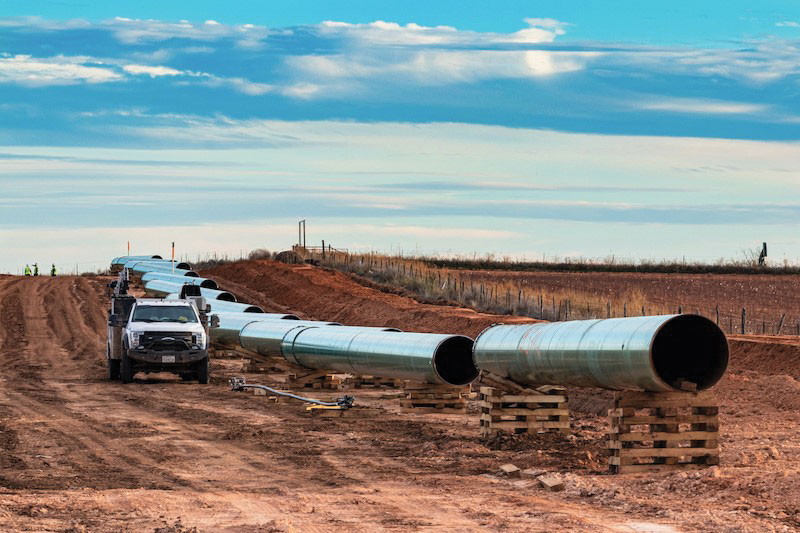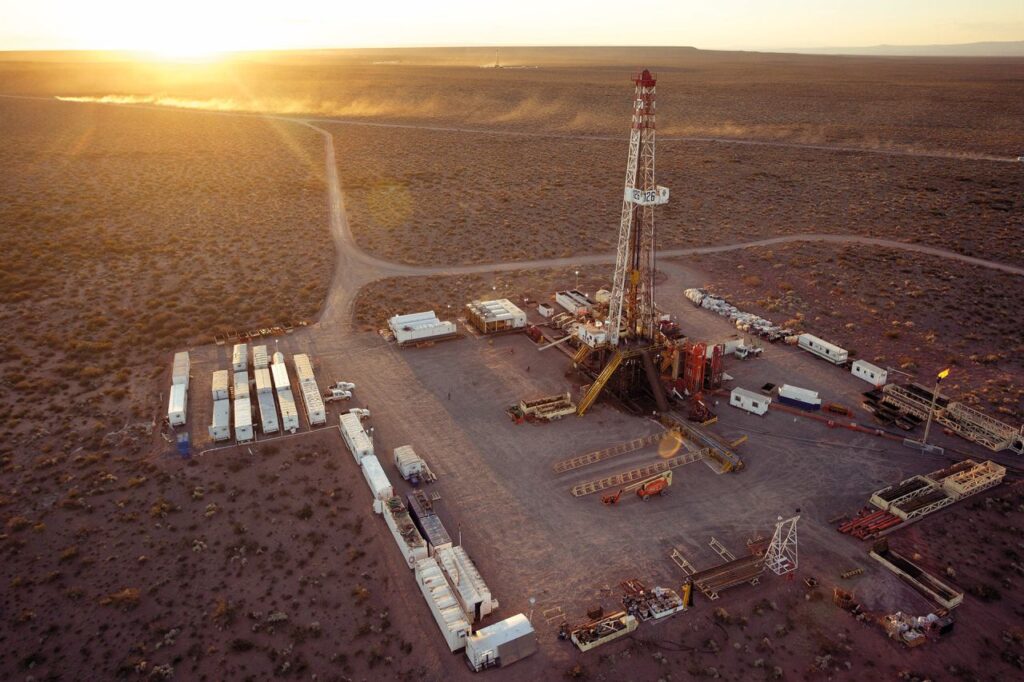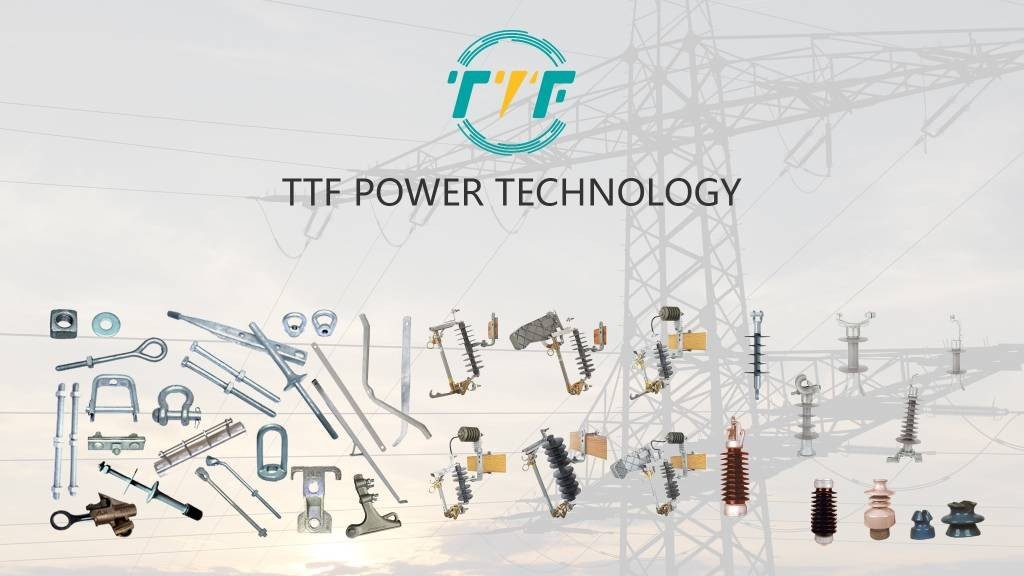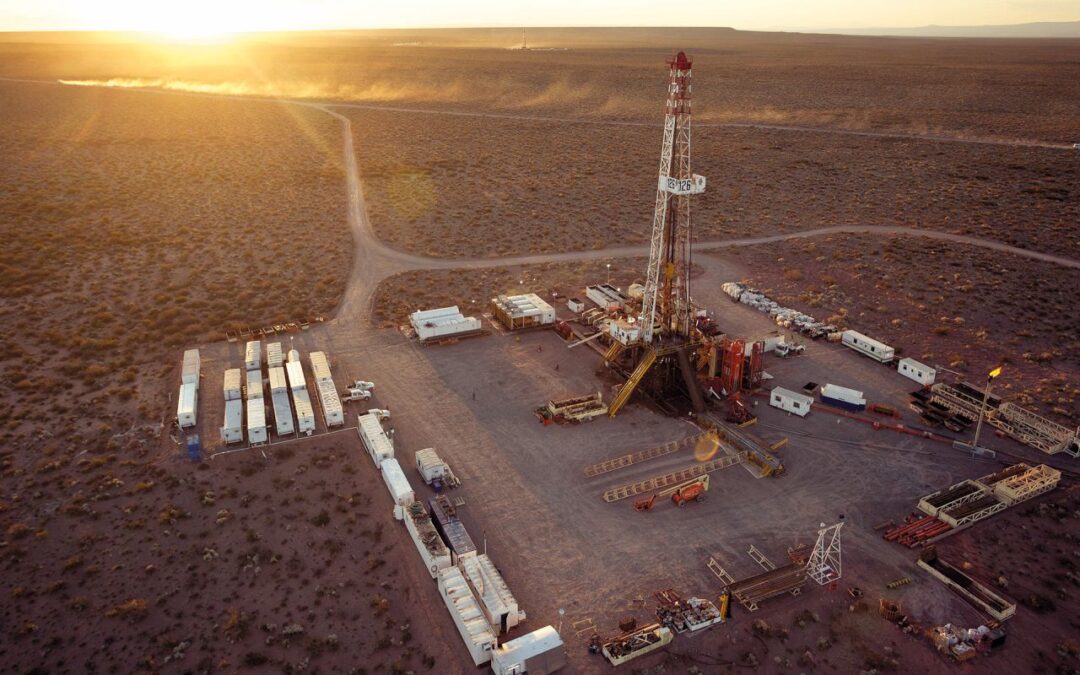- YPF and shell company collaboration aim to develop a liquefied natural gas project in Argentina, sourcing natural gas from Vaca Muerta shale formation.
- The YPF collaboration has acquired a $50 billion investment aiming to produce 10 million metric tons of LNG annually.
- The project offers several opportunities and impacts in the economic, environmental, technical and social sectors in Argentina.
Argentina’s YPF, a state-owned oil company, recently entered a partnership with Shell company to develop the country’s liquefied natural gas (LNG) project. The project has a $50 billion investment and aims to produce 10 million metric tons of LNG annually. The project will source natural gas from the Vaca Muerta shale formation. The LNG project will involve deploying two floating liquefaction units with plans to expand. This partnership positions Argentina as a key player in the global LNG market. It also aims to become a reliable and competitive energy supplier. The project will stimulate economic growth, create jobs, and attract further investments. The YPF-Shell partnership marks a pivotal advancement in Argentina’s energy sector. The success of the project depends on balancing economic ambitions with environmental sustainability, engaging in international cooperation, and navigating geopolitical complexities.
The LNG project aims to increase domestic natural gas production, generate revenue, and enhance the energy sector. This is by diversifying energy exports in the country. The project will also involve phases, starting with initial exploration and development, construction of liquefaction facilities, pipelines, and export terminals. Successful implementation of the project will bring economic benefits and contribute to Argentina’s energy security. The rising global demand for LNG as a cleaner alternative to coal and oil positions the country as a competitive exporter. LNG will also help to reduce production of greenhouse gas emissions and help in achieving climate goals. This is because the partnership includes plans for carbon capture and storage to mitigate emissions from LNG production and use. However, this partnership faces various challenges, including market competition, infrastructure costs, environmental challenges, and regulatory frameworks. This article explores the opportunities, challenges, and impacts of liquefied natural gas in Argentina.
Implications of the YPF-Shell liquefied natural gas project in Argentina
The partnership provides a transformative initiative with the potential to boost the economy. The project has the opportunity to position the country as a global leader in the energy sector. Argentina also has the opportunity to unlock the vast potential of the Vaca Muerta shale formation for the project. The project should manage environmental impacts and community relations to ensure long-term success. Discussed below are the key impacts of liquefied natural gas projects in Argentina.

- Economic impacts—the project represents a $50 billion investment that contributes to the GDP over the long term. The construction of infrastructure like pipelines and liquefaction terminals creates job opportunities. Improved infrastructure will benefit local communities, fostering economic growth in remote areas.
- Energy sector—the country aims to position itself as a reliable LNG supplier in the world. Shell’s expertise will also help ensure operational efficiency and market access. The project will also attract significant value from Vaca Muerta shale formations. The LNG project also complements the transition to renewable energy by funding renewable energy projects.
- Environmental impacts – LNG is cleaner-burning than coal and oil. It reduces global carbon emissions when used in energy generation. The project could also help countries transition to less carbon-intensive energy sources. Shale development brings concerns including water usage, seismic risks, and potential groundwater contamination.
- Social impacts—investment in infrastructure and jobs will improve living standards, leading to increased revenue. Local communities may express concerns about the environmental and social impacts of large-scale fracking and LNG production.
- Trade impacts—the LNG project will transform Argentina into a regional energy powerhouse. This allows it to export LNG to other countries like Europe and Asia. The neighboring countries could enjoy a stable LNG supply.
Challenges limiting the development of the LNG project by YPF-Shell collaboration
The development of the LNG project by YPF and Shell faces several challenges crossing economic, technical, and social domains. Addressing these challenges requires an approach including securing stable funding, advanced technology, and engaging with local communities. Management of these challenges will be crucial for the success of the project. The following are the various challenges facing the development of liquefied natural gas in Argentina.

- Economic challenges—the project needs a large initial investment, which can be challenging in Argentina’s economic climate. LNG prices are volatile, driven by fluctuations in energy demand, geopolitical tensions, and competition from other LNG producers. Construction of pipelines, liquefaction terminals, and other infrastructure involves high costs.
- Technical challenges—extracting gas from the Vaca Muerta shale formation needs advanced hydraulic fracturing technology. This technology is resource-intensive and demands significant expertise. The phased approach also needs planning to ensure scalability and to avoid bottlenecks.
- Environmental and social challenges—hydraulic fracturing raises significant concerns such as high-water usage, increased seismic activity, and risk of groundwater contamination. LNG production and transportation emits greenhouse gases. Local communities may oppose the project due to fears of environment degradation, displacement and insufficient benefits for locals.
- Geopolitical challenges – Argentina will need to compete with well-established LNG exporters with advanced infrastructure. Developing export terminals and securing LNG carriers for transportation to global markets adds logistical complexity.
- Technological expertise—the project needs a highly skilled workforce for construction and operations. Relying on external expertise can slow progress if coordination is inefficient.
- Long-term market viability—energy trends are shifting towards renewable energy sources like solar, wind, and green hydrogen. The long-term viability of LNG as a transitional fuel may face challenges during the phase-out of coal. Meeting carbon reduction targets may add extra pressure on LNG projects to incorporate carbon capture and storage technologies.
Opportunities for liquefied natural gas in Argentina
Liquefied natural gas in Argentina presents opportunities across economic, environmental, and geographic sectors. The opportunities highlight the project’s potential to benefit Argentina and its partners. The country can leverage its natural gas reserves to establish itself as a leading LNG exporter, support the global energy transition, and drive domestic economic growth.

- Global LNG market—the project allows Argentina to become a competitive player in the LNG market. It can also lead to the diversification of export markets to reduce reliance on regional energy trading partners.
- Regional energy leadership—Argentina’s LNG exports could help other countries like Brazil and Chile meet their energy demands. The increased availability can stabilize regional energy prices and enhance cooperation.
- Supporting green energy transition—LNG can play a crucial role in the energy transition by reducing emissions. Revenues from LNG exports can support the renewable energy sector to support long-term sustainability goals.
- Infrastructure development—developing pipelines and export terminals can enhance Argentina’s energy infrastructure. Shell’s collaboration with YPF brings advanced LNG technology and operational expertise.
- Addressing domestic energy issues—Increased LNG production helps the country meet domestic energy needs more efficiently. Surplus gas can convert to LNG export, optimizing resource utilization.
- Resource monetization—monetizing Argentina’s natural gas reserves—ensures long-term economic returns. The project establishes the country as a leader in unconventional resource development.
- Environmental benefits—expanded gas production replaces higher-emission fuels like diesel in Argentina’s power generation and transportation sectors. Infrastructure investments improve access to services, transportation, and employment opportunities for local communities.
- Economic opportunities—the LNG project allows the country to capitalize on global demand for natural gas. This helps in transitioning away from coal and seeking cleaner energy sources. Infrastructure development will create job opportunities. This will create local businesses in construction, transportation, and logistics.
The Future Ahead
The YPF-Shell LNG project in Argentina is an initiative that could reshape the energy landscape and boost its global presence. By utilizing the vast resources of the Vaca Muerta shale formation, the country can transition from a regional energy player to a global LNG exporter. The project offers economic gains, technological advancements, and strengthened geographic influence. To fully realize the project’s potential, the industry experts must address economic uncertainties, navigate environmental challenges, and ensure local community engagement. Investing in infrastructure and aligning with global energy trends could position the country as a key contributor to the global energy transition. The project could also serve as a model for sustainable development to benefit Argentina and its partners. Effective management of the various challenges will help the project contribute to Argentina’s energy sector and economy.

At TTF power, we encourage the development of liquefied natural gas to enhance energy diversification. This is by providing power line products and utility fittings used in the construction and maintenance of the LNG infrastructure. We are a one-stop shop for utility pole hardware fittings, transmission line accessories, and power line construction equipment, providing our customers with the most extensive range of products in the industry, excellentvalue, and knowledgeableservice. TTF is a world-class global provider of high-quality overhead line hardware, transmission hardware, distribution hardware, conductors, insulators, cutout switches, and anchoring and grounding products. Our products are used in the construction, transportation, gas, and water industries. We have a long-established tradition of excellence in our marketplace. Our size and ability have provided us with client relationships that span many years. Check out our catalog and subscribe to our newsletter for weekly updates.


